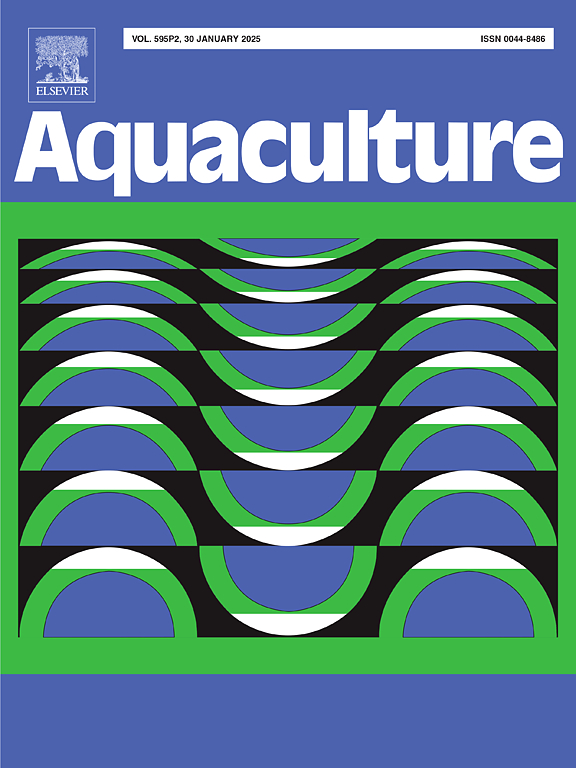通过浸泡传递双链RNA刺激虾的抗病毒反应
IF 3.9
1区 农林科学
Q1 FISHERIES
引用次数: 0
摘要
虾依靠先天免疫来抵御病毒感染。近年来,dsrna介导技术已成为虾类病毒控制的一种有前景的工具。虽然注射和摄食方法能有效抑制病毒复制,但不适用于幼虫后虾。本研究评估了dsRNA溶液浸泡对虾激活RNA干扰(RNAi)和增强对白斑综合征病毒(WSSV)抗病毒免疫的潜力。将虾浸泡在靶向网格蛋白重链(dsCHC)或绿色荧光蛋白(dsGFP)的dsRNA中3小时,rnai相关基因(Sid1, Dicer2, Ago2)上调,但未检测到特异性mRNA沉默。这些成分的诱导显著提高了RNAi的疗效。此外,非特异性抗病毒基因如IRF升高。用WSSV攻毒预浸虾后,低剂量组鳃内病毒水平下降87%,累计死亡率从对照组的47%降至16.6%。在高剂量组,死亡率在头两天内显著下降,尽管所有虾在第7天死亡。结果表明,虽然没有观察到dsRNA浸泡的特异性mRNA沉默,但dsRNA能够激活虾的抗病毒反应,包括RNAi和非特异性免疫,从而显著降低病毒水平和虾因WSSV感染的死亡率。本文章由计算机程序翻译,如有差异,请以英文原文为准。
Double-stranded RNA delivery through soaking stimulates antiviral responses in shrimp
Shrimp rely on innate immunity to defend against viral infections. Recently, dsRNA-mediated technology has emerged as a promising tool for virus control in shrimp. While injection and feeding methods effectively inhibit viral replication, they are unsuitable for post-larval shrimp. This study evaluates the potential of soaking shrimp in dsRNA solution to activate RNA interference (RNAi) and enhance antiviral immunity against White Spot Syndrome Virus (WSSV). Shrimp were soaked in dsRNA targeting clathrin heavy chain (dsCHC) or green fluorescent protein (dsGFP) for 3 h. RNAi-related genes (Sid1, Dicer2, Ago2) were upregulated, although specific mRNA silencing was not detected. The induction of these components significantly enhanced RNAi efficacy. Additionally, non-specific antiviral gene, like IRF, was elevated. When pre-soaked shrimp were challenged with WSSV, virus levels in the gills decreased by 87 % in the low-dose group, and cumulative mortality reduced from 47 % in the control group to 16.6 %. In the high-dose group, mortality decreased significantly within the first two days, despite all shrimp succumbing by day 7. The results suggest that while specific mRNA silencing by dsRNA soaking was not observed, the dsRNA was capable of activating shrimp antiviral responses, including RNAi and non-specific immunity, leading to a significant reduction in virus levels and shrimp mortality from WSSV infection.
求助全文
通过发布文献求助,成功后即可免费获取论文全文。
去求助
来源期刊

Aquaculture
农林科学-海洋与淡水生物学
CiteScore
8.60
自引率
17.80%
发文量
1246
审稿时长
56 days
期刊介绍:
Aquaculture is an international journal for the exploration, improvement and management of all freshwater and marine food resources. It publishes novel and innovative research of world-wide interest on farming of aquatic organisms, which includes finfish, mollusks, crustaceans and aquatic plants for human consumption. Research on ornamentals is not a focus of the Journal. Aquaculture only publishes papers with a clear relevance to improving aquaculture practices or a potential application.
 求助内容:
求助内容: 应助结果提醒方式:
应助结果提醒方式:


